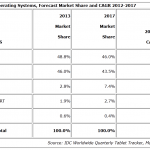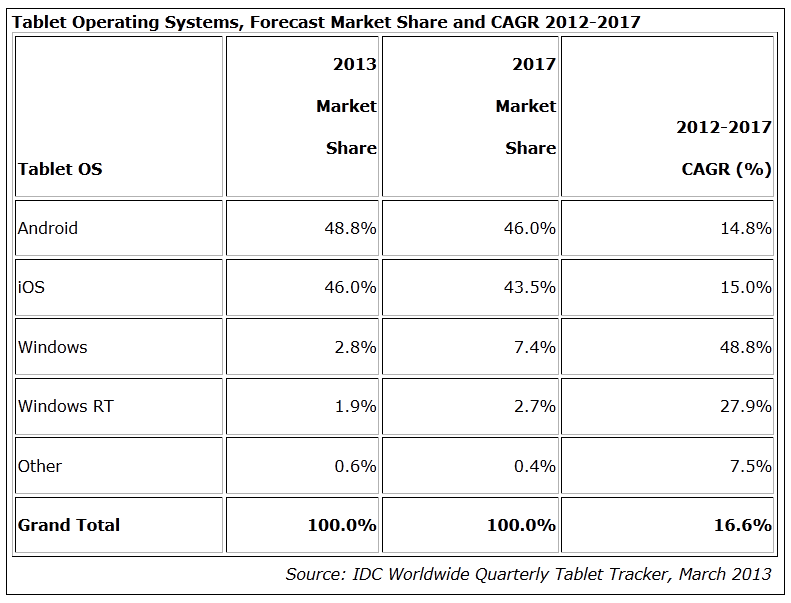In the early and mid-2000’s, the word “BlackBerry” was symbolic of smart phones but now, it’s a foregone story due to their delayed response to the market. Add to that a recent statement by BlackBerry CEO Thoris Heins that made their market understanding questionable. According to the CEO:
“In five years I don’t think there’ll be a reason to have a tablet anymore. Maybe a big screen in your workspace, but not a tablet as such. Tablets themselves are not a good business model.”
It is good to see that the business leaders have confidence on their products, but in reality, the market is for those who understand the needs of the consumer proactively. When we compare the data from the market pundits with that of Thorsten Heins’s theory, it is quite contradictory.
IDC prediction on Tablets:
The research firm expects 190.9 million units to ship in 2013, up from its earlier expectation of 172.4 million, a direct consequence of the growth in the number of low priced devices. Going forward, IDC expects an average increase of 11 percent in Tablet sales for the period 2016.
Gartner prediction:
It is clear from the above data that the market space for Tablets is growing exponentially compared to desktops and laptops. Although the forecast does not reveal the exact future, the data still holds water because of the consistent demand the market has been witnessing for the last few years, with all signs of this momentum continuing.
RIM has a history of making secure and robust enterprise solutions, which have proven their mettle over the years. RIM’s BlackBerry Enterprise Service (BES), and the BlackBerry Messenger which were for long the company’s flagship services, have somehow been sidelined by other alternatives. The recent announcement of bringing BBM to Android and iOS is a step in trying to capture the lost glory. It remains to be seen how this decision will work for BlackBerry
Another interesting point to note here is the half-baked attempts BlackBerry has put in for its own tablet, the PlayBook. It came with an OS built on the QNX platform (which BlackBerry acquired) that is said to have had a lot of potential and promise. It was possible to port Android apps on to the PlayBook, making it easier for the developer community to build apps for this platform as well. However, it had a lot of fundamental issues which were left un-addressed for a very long time. The lack of BES support and inbuilt BBM, the key features of Blackberry on BlackBerry’s flagship tablet, says a lot about the company’s approach towards this segment of devices.
Thorsten Heins could have acknowledged their failure on Tablet segment rather than blaming it on tablets business. However, if blackberry envisions that tablets will become obsolete, then it’s time that they lead from the front by bringing innovative solutions that caters to the newer needs. Till then, it will be difficult for them to grab the bigger market share and to increase their customer base.
You Can Learn More About the ManageEngine Product Line By Going to manageengine.optrics.com
The original article/video can be found at Blackberry CEO Vs Market experts on Tablets growth




